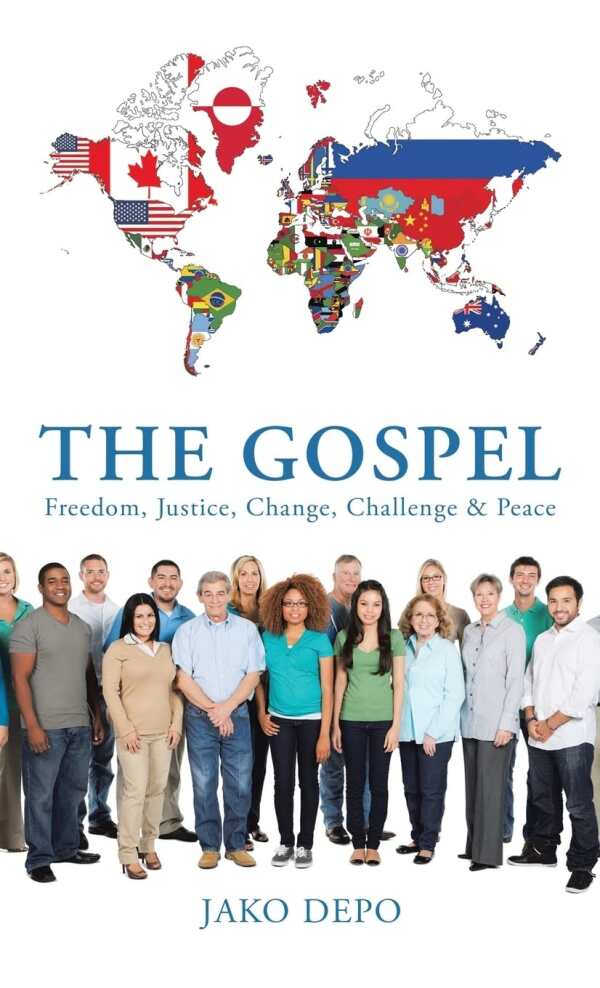The Gospel
Freedom, Justice, Change, Challenge & Peace
Evincing insatiable curiosity on global sociopolitical topics, The Gospel is a vast, opinionated essay collection.
Jako Depo’s eclectic essay collection The Gospel weighs in on contemporary job interview techniques, transportation in Canada, racism and historical slave routes, and a host of other subjects.
Beginning with a discussion of Earth’s various dangerous animals and insects, the entries speculate on topics large and small, from political events in the Democratic Republic of the Congo to discussions of the proper ways for men to treat women. Religious beliefs, strict moral codes, and the basic functions of social life are recurrent themes. And as they shift from documenting the infrastructural accomplishments of developed countries to listing individuals’ obligations toward each other, the personal center of the essays’ idiosyncratic editorializing comes into focus.
Applying a conversational style to dry subjects, as of the different types of urban transport that exist around the world or the fifteen qualities that enable making intelligent choices, the essays run long and tend to be amorphous. Many bundle disparate facts together without sufficient transitions or distinct labels and headings. An essay on immigration law, for example, starts with a list of the various identities immigrants have, including senior citizens, children, and teenagers, before moving into discussions of Aboriginal populations in Australia, colonists versus immigrants, and the significance of citizenship. Some of the included statements are incorrect, as with an assertion that most American passports are valid for five years and that a new American law punishes citizens for allowing their passports to expire. And some of the book’s claims are too anecdotal to be generally illustrative, as with the story of a dual Canadian American citizen who was jailed in a US airport for two weeks, deported to Vietnam, and stripped of both citizenships.
The prose is imprecise and unconvincing throughout. Legality is invoked in dubious instances, as when the book declares that women should not fight other women although it is legal to do so; the blanket terms “good” and “bad” are often used to paper over moral gray areas, too. Terms like “good people” and “bad people” are used throughout, too, though the parameters of such proclamations are underexplained and ill-defined. Further, multiple essays are too dated to command ongoing attention, as with those that reference political events from over a decade ago as though they are current. And while compelling criticisms of police brutality recur, their revivals are not accompanied by solutions or suggestions for reform—only additional evidence of injustice. Indeed, lists dominate the collection at the cost of persuasiveness: its sheer quantity of underinterrogated information and overlapping subjects render its aims too opaque.
A dizzying essay collection, The Gospel catalogs ideas and proffers advice on a bevy of subjects.
Reviewed by
Willem Marx
Disclosure: This article is not an endorsement, but a review. The publisher of this book provided free copies of the book and paid a small fee to have their book reviewed by a professional reviewer. Foreword Reviews and Clarion Reviews make no guarantee that the publisher will receive a positive review. Foreword Magazine, Inc. is disclosing this in accordance with the Federal Trade Commission’s 16 CFR, Part 255.

